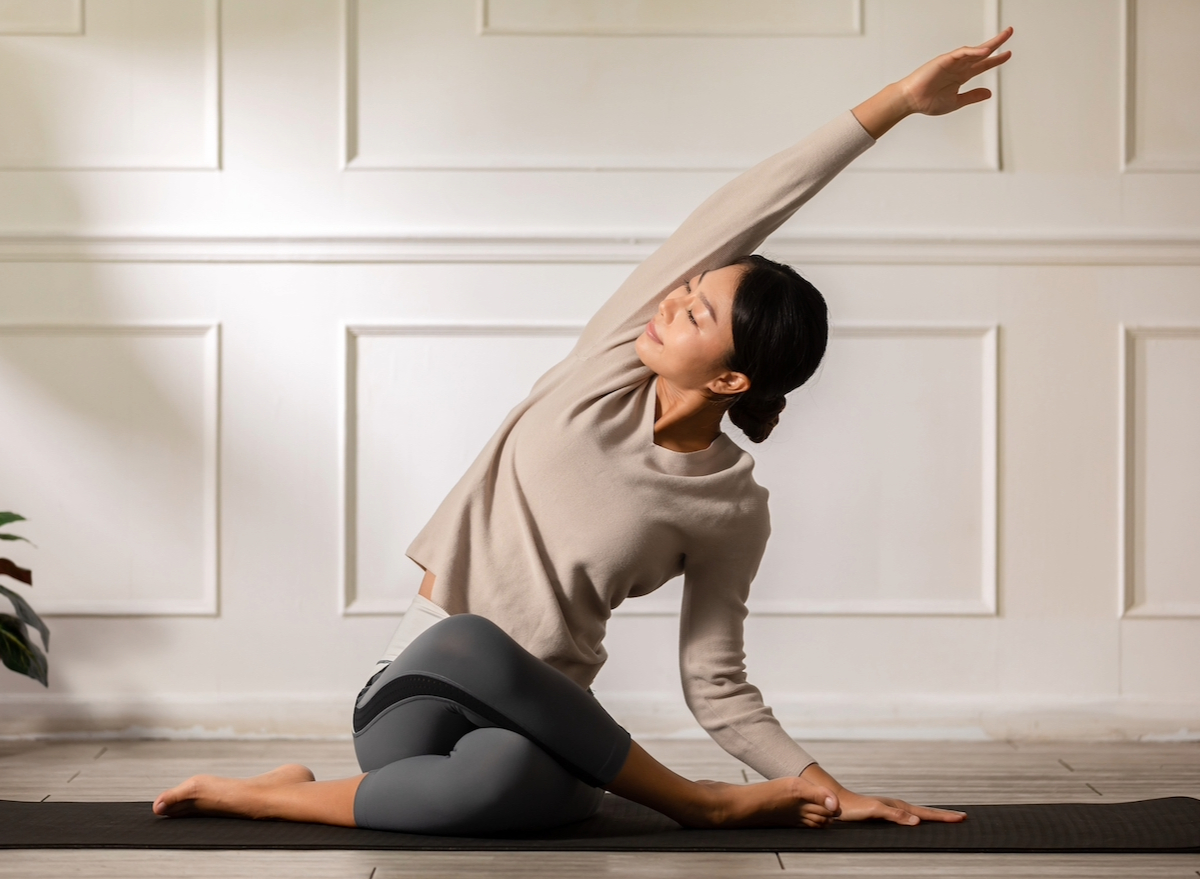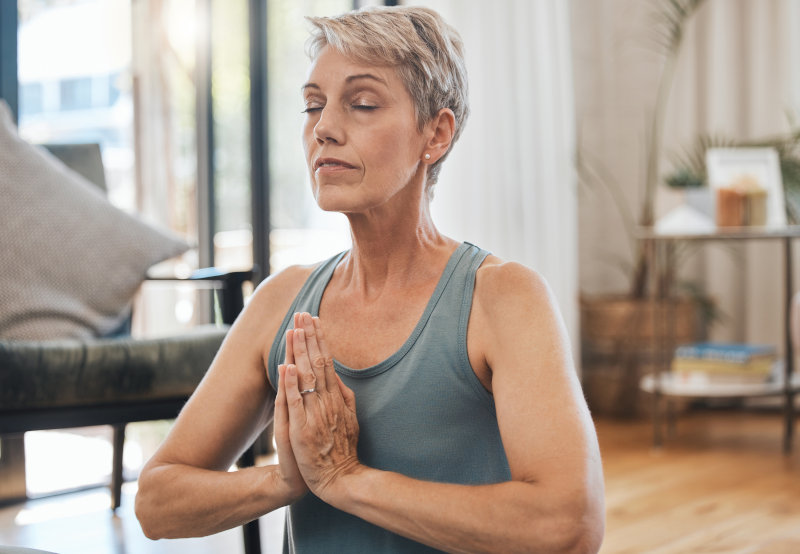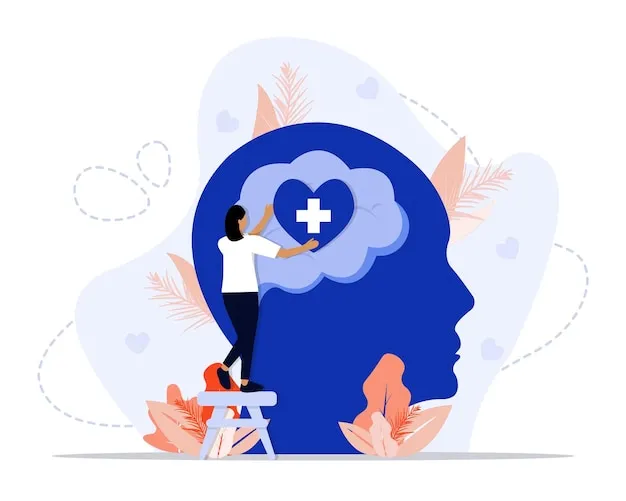For thousands of years, yogis have been promoting yoga’s mental and physical capabilities. Luckily, you don’t have to be an expert to enjoy the benefits — adding just a few yoga poses to your daily regimen can help your daily health in all kinds of unanticipated ways.
“On a physical level, yoga helps improve flexibility, strength, balance, and endurance,” says Linda Schlamadinger McGrath, the founder of YogaSource Los Gatos in Los Gatos, California, who is certified by Yoga Alliance, the world’s largest nonprofit yoga association that certifies teachers and schools. “And on a psychological level, yoga can help you cultivate mindfulness as you shift your awareness to the sensations, thoughts, and emotions that accompany a given pose or exercise.”
And there’s also a growing corpus of science demonstrating that a regular yoga practice may benefit individuals with a host of chronic health conditions, including asthma, heart disease, and multiple sclerosis (MS). That literature is not as established as the practice of yoga itself, but a lot of work has been done. Here’s what we know.
Yoga Boosts Emotional Health and Relieves Stress
Exercise increases vitality and temperament, and yoga is no exception. Many who practice yoga do so for its benefits in terms of relaxation and stress management. Research from 2022 demonstrates that yoga, as well as mindfulness, is associated with reductions in perceived levels of stress. Additionally, research has shown yoga interventions are linked to enhanced objective measures of stress levels in the body, like reduced evening cortisol levels, reduced wake cortisol levels, and decreased resting heart rate.
Yoga can yield emotional health benefits because it’s an exercise that works both the body and the mind, says Manuela Kogon, MD, a clinical professor of psychiatry and behavioral sciences at Stanford Medicine and an internal medicine doctor at the Stanford Center for Integrative Medicine in Palo Alto, California.
“Yoga practice comprises not just movement, but dynamic movements tied to breath,” Dr. Kogon says. “Focusing on body postures can shift attention away from negative thinking.”
And individuals with and without mental health conditions can benefit, she says. Research has shown that yoga can benefit individuals with depression and schizophrenia.
Yoga May Help You Get a Good Night’s Sleep

The relaxation associated with yoga can be beneficial for sleep, Kogon says. Gentle yoga before bed is recommended as a lifestyle change that can help people with insomnia, but it can be a wonderful prebed regimen for anyone.
Practicing relaxing asanas, or postures, such as forward fold (Uttanasana) or reclining on your back with your feet up the wall can be excellent methods to help you decompress immediately before nightfall, says Tamal Dodge, the proprietor of Yoga Salt in Los Angeles. “They’ll help calm your body and, most importantly, your mind.”
Yoga May Help Your Hangover
The morning after a night of imbibing, yoga may be the last thing on your mind, but maybe it shouldn’t be.
Kogon says that while she’s not aware of scientific studies on yoga’s ability to mitigate hangovers, there’s plenty of anecdotal evidence that it works. “It could be that the increased blood flow that comes with doing yoga helps eliminate the toxic effect of alcohol,” she says.
Start with mild poses, and if you feel any nausea, ease it down.
Yoga May Help With Chronic Back Pain
“Back pain is eased with yoga because the practice helps improve flexibility and muscular strength,” says Kogon. Research suggests that yoga is a more effective treatment for chronic back pain than the usual care for enhancing back function.
If you do have back pain, select for gentler forms of yoga, like hatha or Iyengar, rather than more vigorous practices, to avoid injury, Kogon says. And remember, it’s always a good idea to consult with your doctor before commencing a new form of physical activity if you do have an existing back problem or other medical condition.
Yoga Helps Fight Heart Disease

There’s a growing body of evidence that yoga can benefit your heart. Several studies imply yoga can help reduce known heart disease risk factors, such as elevated blood pressure, among those who are hypertensive, according to research.
Another study that followed patients with heart failure found that adding eight weeks of yoga to their treatment increased the patients’ capacity for exercise, improved their heart health, and enhanced their overall quality of life compared with patients who did not do yoga in addition to regular treatment.
“Yoga increases blood flow, gets oxygen to the periphery of the body, and relaxes blood vessels, which is good in heart failure. It eases the burden on the heart,” Kogon says.
Physical activity, breathing exercises, and meditation separately are all known to help mitigate cardiovascular disease risk factors, so it’s not a stretch to comprehend why studies have found yoga (which incorporates all three of these) helps do the same.
Gentle Yoga Movements Can Ease Arthritis Pain
Regular exercise can help keep joints flexible, muscles toned, and weight under control, which is what people with arthritis need to manage discomfort. Yoga can be a wonderful method for people with arthritis to remain active, because the moderate cadence of movement can be less taxing than other forms of exercises, according to the Arthritis Foundation. Studies have shown practicing yoga is linked to less discomfort and enhanced joint function in individuals with various forms of arthritis.
“We speculate that the increase in flexibility, increased muscle strength, and stress reduction are modifying factors in arthritis pain,” Kogon says. So it would make logic that yoga may assist with symptoms. There isn’t clear evidence that one form of yoga is superior than another for pain. As always, if you have a medical condition, it’s a good idea to consult with your doctor before attempting a new form of physical activity.
Yoga May Help Ease Asthma Symptoms
Yoga has undoubtedly not been proved as a cure for asthma, but there is some evidence it might assist with symptoms. One review of 15 randomized controlled trials found that yoga was associated with improvements in quality of life and symptom management for individuals with moderate asthma. But more research is required to ascertain the mechanisms of how yoga helps and whether or not it enhances respiratory function (which causes asthma in the first place).
Kogon says it makes logical that yoga would help with asthma symptoms because breathing exercises help release the muscles in various regions of our airways, which constrict and tense up during an asthma attack. “Asthma attacks can be quite stressful. Controlled breathing helps reduce tension which in turn helps regulate respiration,” she explains.
Yoga Can Help People With Multiple Sclerosis Manage Symptoms

The loss of muscle function, coordination, and other issues that come with multiple sclerosis can be frustrating, but some research indicates that yoga might help with MS by enhancing both physical function and mood. Practicing yoga can help with day-to-day functioning by enhancing balance and muscle alignment, strengthening muscles, and fostering relaxation, which helps with overall stress levels, according to the National Multiple Sclerosis Society.
Research has found that for individuals with MS, yoga can enhance walking pace, pain, fatigue, and concentration, among other quality-of-life markers.
Yoga May Help Reduce PTSD Symptoms
Because yoga promotes well-being and helps with tension, many people turn to it after confronting trauma or while coping with challenging events to promote mental wellness. More and better-designed clinical trials are needed to better establish yoga as a tool to assist with symptoms of post-traumatic stress disorder (PTSD), but the evidence that does exist suggests yoga can help.




